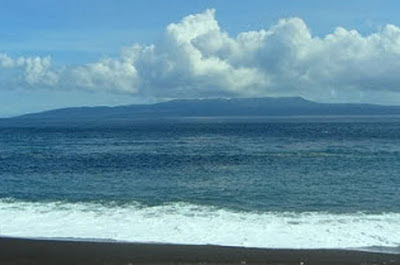Narmada Baliraja Park is a royal heritage site located in the village of Tamanbali, Bangli Regency, Bali. This historical park, spanning approximately 50 acres, is surrounded by lush rice fields, creating a tranquil and picturesque setting. Within the park, visitors will find serene ponds and places of worship, including a temple called Kawitan Maha Gotro Tirta Harum. This temple holds significant cultural and spiritual value for the local community, and is an integral part of the park’s charm. The park also houses temples built by the subak organization, a traditional Balinese irrigation system. These temples, known as subak temples, are located to the west of the Kawitan Maha Gotro Tirta Harum temple and play an important role in the spiritual life of the surrounding farming community.
One of the park’s notable features is the Gold Bale building, a historical structure that underwent renovations in 1986, led by the residents of Tamanbali. This renovation effort has helped preserve the building, enhancing its appeal as a cultural attraction. Narmada Baliraja Park is rich in history and heritage, offering a unique glimpse into Bali’s royal past while also serving as a beautiful setting for relaxation and recreation.
The park has great potential to be further developed as a tourist destination, especially for activities such as fishing, cycling, and nature exploration. Visitors will be delighted by the park’s natural beauty, and the various facilities available make it an ideal spot for a day out in the fresh air. The park’s location, surrounded by scenic landscapes, offers an immersive experience for those who enjoy outdoor activities, with cycling paths allowing visitors to explore the rural surroundings.
Tamanbali Village, where the park is located, serves as a strategic connection between the tourist destinations in Gianyar and Bangli Regencies. The village has modern infrastructure, including access to electricity and clean water, ensuring that visitors are comfortable during their stay. The accessibility of Narmada Baliraja Park makes it an easy addition to any travel itinerary, whether you're visiting from the nearby city of Bangli, located just 5 kilometers to the north, or from Denpasar, which is around 35 kilometers away.
Narmada Baliraja Park offers not only a peaceful retreat into nature but also an opportunity to explore Bali’s cultural heritage. Its historical significance, combined with the serene atmosphere of its ponds, temples, and rice fields, make it a unique destination for both local and international visitors. With the potential for further development in eco-tourism, this hidden gem in Tamanbali promises to offer memorable experiences for those seeking to enjoy Bali’s natural beauty and historical richness.
Whether you're interested in cultural exploration, outdoor activities, or simply unwinding in a tranquil environment, Narmada Baliraja Park has something special to offer.










